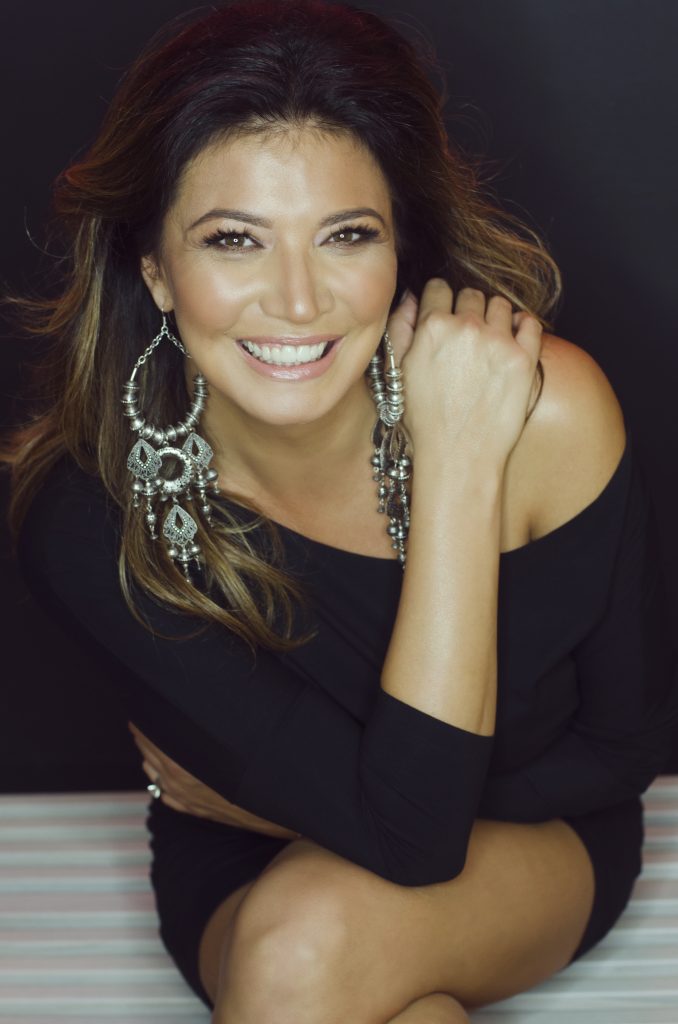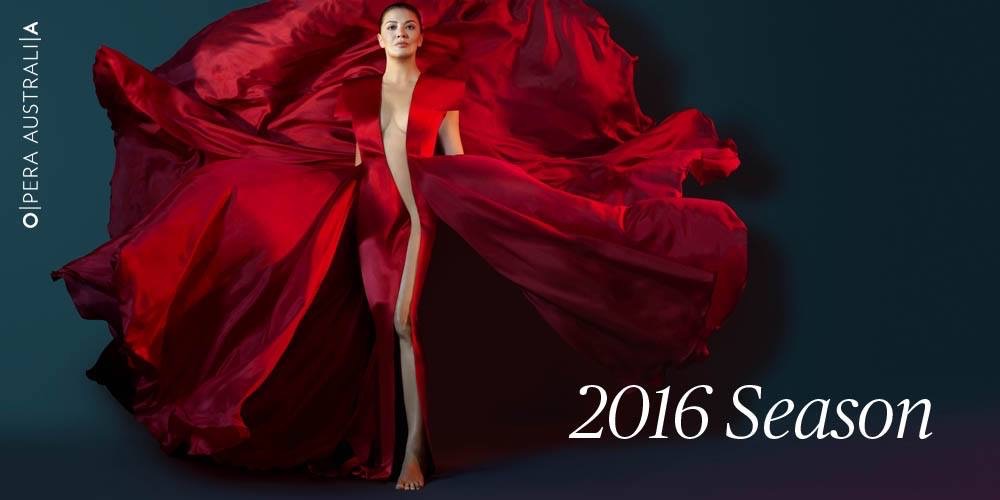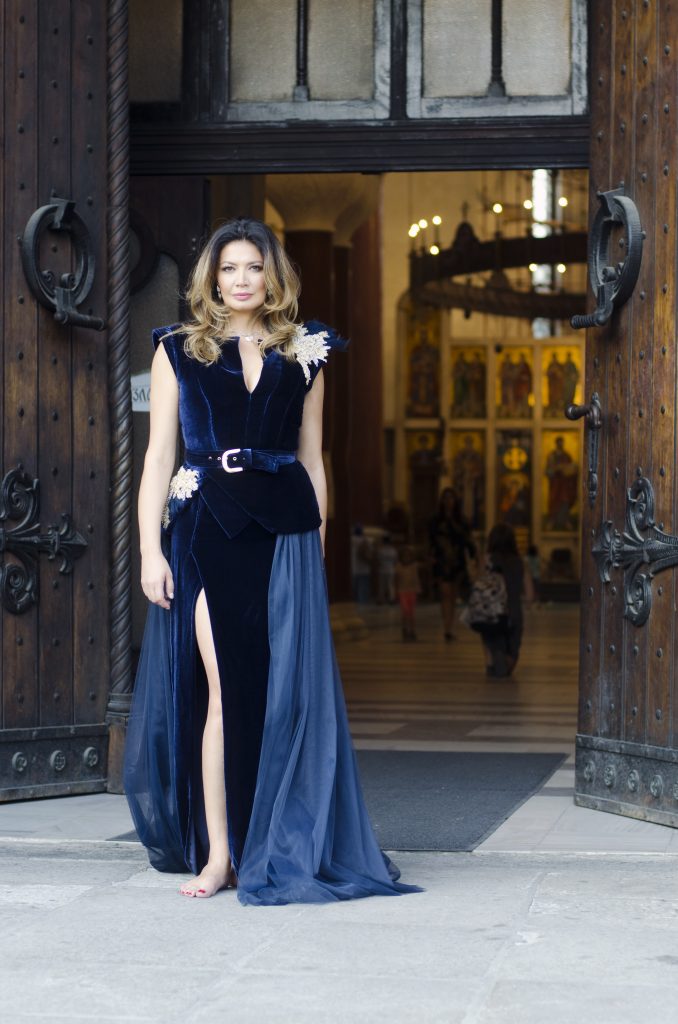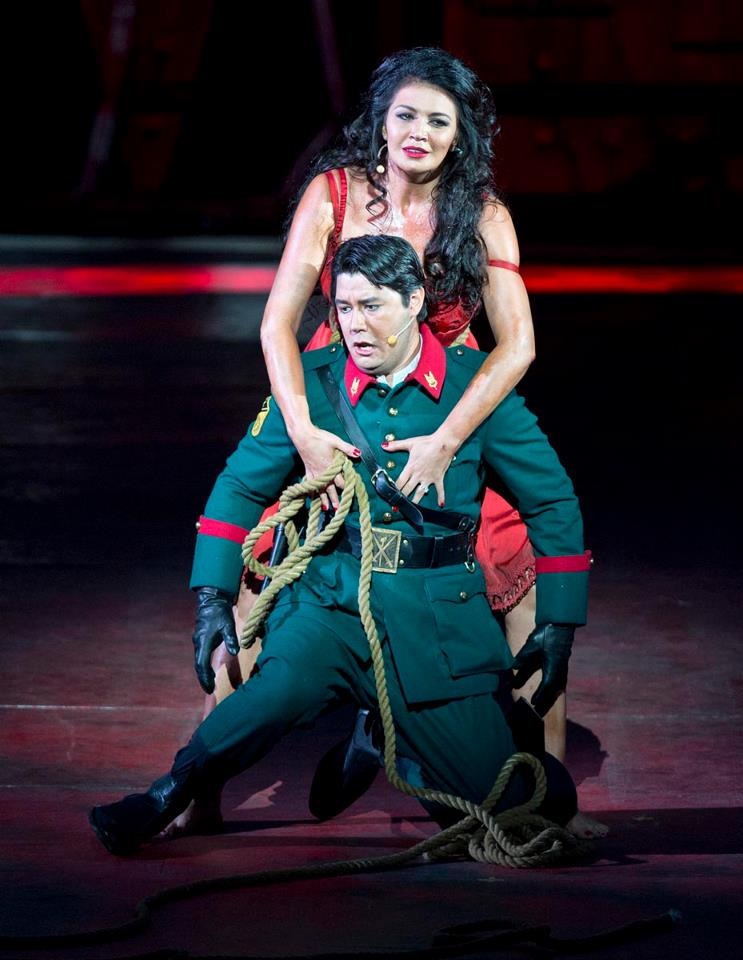Milijana Nikolić is known as “the sexiest Carmen” and a girl-next-door that became a star. She began her singing career in her native Sremska Mitrovica, in the Sirmium Cantorum Choir, which was globally famous at the time, and continued honing her solo career at the Music Academy in Belgrade, in the class of Radmila Smiljanić. Already at the age of 23, she became a prominent vocalist, then a recipient of the Biserka Cvejić Award (in 1998), and in 2001, she showed everyone that she was a serious contender for world fame. She joined La Scala in Milan, and in 2015, she had her debut at the Metropolitan Opera in New York. We are talking to Milijana about her career, plans and activities during the COVID-19 pandemic.

When did you realize that your calling was an opera singer? In your childhood?
Yes, I was intrigued by opera singing as a child. Maybe because I was a very introverted, shy and quiet girl. I remember that my wonderful teacher Marica Katanić had to stand really close to my desk just to hear me. Then, one day, I saw a very popular opera singer Dubravka Zubović on TV and was I am completely mesmerized by the sound, the vibration and the beauty that the human voice could produce. Ever since then, I have been standing in front of the mirror, trying to produce the same voice. You can imagine how strange it all seemed to my parents. I also remember when I sang in my class for the first time. Sometimes, instead of taking a test in high school, my classmates would ask the professors to allow me to sing in class. I was already taking singing lessons by then.

The coronavirus pandemic is not the first big challenge you had to deal with. There was the civil war, the economic sanctions and the NATO bombing in 1999 that posed a huge challenge to all of us. How can we continue to aspire to higher aims in art when everything around us is falling apart? How did you boost your spirit as a young girl?
Art is salvation for the soul, especially in such extraordinary circumstances. Art was my escape from reality. At that time, I was in Belgrade studying and working part-time in the Radio and Television of Serbia Choir. Back then, my world was the rehearsal room at the Music Academy where I was happy just rehearsing. That discipline certainly bore fruit later. I hung out with wonderful people and those friendships still last to this day, even though we don’t speak with each other every day. The pandemic has given us more time to renew our friendships, share opinions and laugh together.

How difficult was it to come from post-war Serbia to Milan in 2001 and propel yourself into stardom from there?
It wasn’t easy at all. First of all, it was a great shock for me because during all our troubles and confinement we had no idea about what the outside world looked like. The competition is huge. For instance, there were 200 people short-listed to enrol into La Scala’s Academy in Milan. I had three auditions for my first role at La Scala. Of course, luck also plays a big part, i.e. who gets to listen to you, at which moment in time and in which role. Sometimes you have to fight the stereotype. It took me a long time to get the role of Carmen, which is probably the role that has marked my career so far, considering that I stand at 185cm tall. However, luck played a part when I was in Australia and preparing for the role of Ulrica from “A Masked Ball”. “Carmen” was staged at the same time and both of my colleagues, who sang Carmen, fell ill. I was in a taxi, on my way to the rehearsal for “A Masked Ball”, when I got a call from the opera management asking me if I could sing Carmen that night. Did I also mention that you need to be brave to be lucky? After that evening, I got a contract from the Sydney Opera House to sing Carmen the following season, and it was when I was singing Carmen that Lenore Rosenberg heard of me and subsequently invited me to perform at the Metropolitan Opera.
Tell us something about your current career that is on hold at the moment?
I am currently in Rome. Everything has stopped and performances and concerts have been postponed until further notice. There is still hope for me performing in “Tristan and Isolde” in Australia, but that is not a done deal. Freelance artists are in a very difficult and uncertain position at the moment. What I am really afraid of is how freelance artists will survive both in our country and the world (after the pandemic). It is discouraging to see that our country has allocated no budget funds for culture and art. Not only freelance artists are at risk, but also home-based artists, all behind-the-scenes artists, mechanics, costume designers, choreographers, make-up artists. We cannot imagine the world without art. Although, art will survive, the immediate future of artists deeply concerns me.

You often fly from Australia to Italy to the US to Serbia and back. In which country do you feel the most comfortable and which place do you call home?
Serbia will always be my home because I originate from here and that is one of the reasons why I kept my maiden name because I wear my identity with pride. Australia is my new home, a country that gave me a lot professionally speaking. Australia is where my son was born too. Italy is also my home because Italians are very close to us. This is also where my international career was launched and where I met my Italian husband. Plus, Italy has one of the best cuisines in the world. I have a lot of friends in the US and Japan who make me feel at home when I go there. Wherever I meet with my nearest and dearest, that is my home.
You have worked with our old acquaintance Khachatur Almazian. How would you describe that experience?
Hachi, as his friends like to call him, is an exceptional artist and, above all, an exceptional human being of great charisma and inexhaustible energy. He pushes boundaries, speaks our and many other languages perfectly, and has a remarkable talent for connecting people. The incredible fact is that he put me in touch with some of our orchestras, such as the Vojvodina Symphony Orchestra and NOMUS, the renowned festival in Novi Sad, which was supposed to celebrate its 40th anniversary in April. I was also hired to close the festival by performing with the Arts Academy Symphony Orchestra in Novi Sad.
How are you coping during the pandemic, unable to perform and self-isolating?
I am completely dedicated to my son. We do online school every day, we do various projects, we learn to play the piano, we play football in the yard. I taught him to play hopscotch (my mother taught me how to play) which he likes. We also play Ludo and I have to let him win every single time. I practice every day as if I am performing tomorrow. Singing is still a form of therapy that protects my mental and spiritual health.
What will you do first when this is all over and what are your plans after the pandemic?
The hardest part of the pandemic is that we can’t plan anything. I have not seen my husband for four months because he could not come home from Australia. I have only one wish and that is to freely run on the beach and play in the sand with my family.